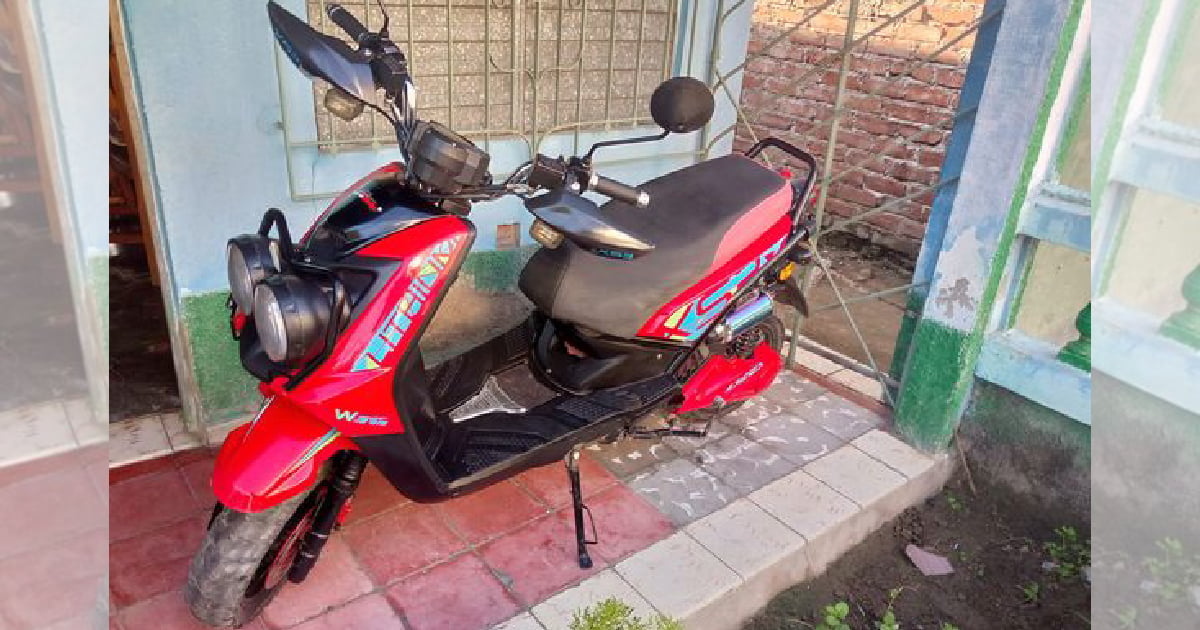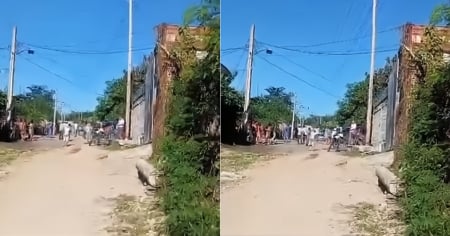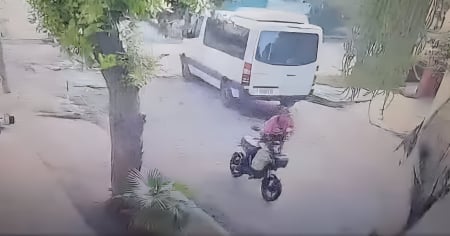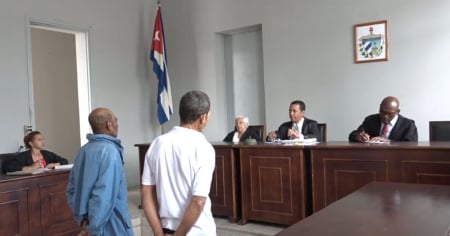
Related videos:
The city of Matanzas, like other parts of Cuba, has been affected by a troubling wave of electric motorcycle thefts and other household goods, a phenomenon that has caused uncertainty among the residents.
The modus operandi is similar in most cases. A recent article titled "So That They Don't Steal Our Peace," published in the state-run newspaper Girón, has highlighted the police's efforts in combating this crime; however, thefts still occur more frequently than what the authorities manage to resolve.
According to what was explained in Girón, criminals enter homes, whether occupied or not, mainly during the night or early morning hours. They use tools such as crowbars or screwdrivers to force open main doors, garages, or windows.
They put on hoods and conduct a careful preliminary study of their targets, marking the houses and observing the owners' habits, such as what time they go to bed, whether they turn on lights, and the routes for access and escape.
However, they do not always operate within homes. At times, they take advantage of the owners' negligence to steal motorcycles directly from public streets. This was confirmed by First Lieutenant Elizabeth Estrada Tamayo, a criminal instructor, and Captain Yosvany Guerrero Peña, a forensic expert, who were involved in the dismantling of a gang that operated in the neighborhoods of Matanzas, Pueblo Nuevo, and La Playa.
According to officials, this organization managed to operate for months before being apprehended, during which time they stole at least 11 scooters.
Authorities have emphasized citizen collaboration as essential for solving cases, including the identification of stolen items in workshops. However, the fact that these networks can operate undetected for extended periods raises questions about the security system's ability to anticipate crimes rather than merely react after they occur.
In this context, there is concern over the lack of exemplary sanctions for those responsible and the speed at which stolen items are integrated into the market, indicating a possible network of complicity that extends beyond the direct perpetrators of the thefts. This is a structural problem that requires a stronger response.
"Unfortunately, not all incidents of this kind have the same outcome. While some never find out what happened to their stolen property, for others, it can result in injuries," acknowledges the media outlet.
"These robberies continue to gain momentum and could end in a murder," said one of the sources quoted in the article, noting that the thieves are willing to do anything to achieve their goal.
According to Yulelkis Hernández Bernal, provincial prosecutor of the Criminal Proceedings Department of the Provincial Prosecutor's Office, incidents of this nature have significantly increased. Criminals, organized into small gangs, operate using strategies that include hiring drivers, intercepting them at strategic points, acquiring the stolen goods, and then selling them.
"The law is strict in imposing penalties on offenders, and it needs to be, because those who intrude into a home violate a sacred space where we all should feel safe," explains Hernández Bernal. The prosecutor highlighted recent high-profile cases, such as the theft of a motorcycle in Jovellanos that resulted in the murder of a young man, and another case in the Buey Vaca area, which also ended fatally.
Legal framework and severity of penalties
The prosecutor explains that violent robberies, defined as multi-offensive crimes that threaten both the physical integrity and property of individuals, carry prison sentences ranging from seven to 15 years for their basic form, escalating to penalties of 15 to 30 years, or even life imprisonment in aggravated cases.
Among these cases are situations involving serious injuries, the involvement of minors, the use of firearms, or the deprivation of liberty of the victims.
On the other hand, burglaries that do not involve physical violence carry penalties of three to eight years in their basic form, and from four to ten years if the crime occurs in inhabited homes, increasing to up to 15 years if the residents are present during the robbery.
In Matanzas, citizens' trust in institutions is being put to the test. Without a more preventive, transparent, and coordinated approach, the feeling of insecurity may persist, even if specific progress is made in recovering vehicles. Authorities must double their efforts to ensure that these crimes are not only solved but also effectively prevented.
Frequently Asked Questions About the Wave of Electric Motorcycle Thefts in Matanzas
What is the modus operandi of electric motorcycle thieves in Matanzas?
The modus operandi of thieves in Matanzas involves entering homes, whether occupied or not, during the night or early morning. They use tools like crowbars or screwdrivers to force open doors, garages, or windows. The criminals wear hoods and conduct a careful prior study of their targets, including observing the owners' habits.
How are the authorities responding to the wave of electric motorcycle thefts?
Authorities have emphasized the importance of citizen collaboration in solving cases, and although they have managed to dismantle some gangs, the effectiveness of the security system in preventing these crimes is being questioned. There is criticism regarding the lack of exemplary penalties and the speed with which stolen goods are integrated into the market.
What penalties do those responsible for electric motorcycle thefts face in Cuba?
Robberies involving violence can result in sentences ranging from seven to 15 years in prison, extending from 15 to 30 years or even life imprisonment in aggravated cases. Robberies without physical violence, which involve force, carry penalties of three to eight years, which can increase if the crime occurs in occupied homes.
What security measures can electric motorcycle owners take to prevent theft?
To prevent theft, owners can install alarms, locks, and GPS systems on their electric motorcycles. It is also advisable to avoid leaving the motorcycles on the street overnight and not to neglect the keys or leave the motorcycles unattended.
Filed under:






